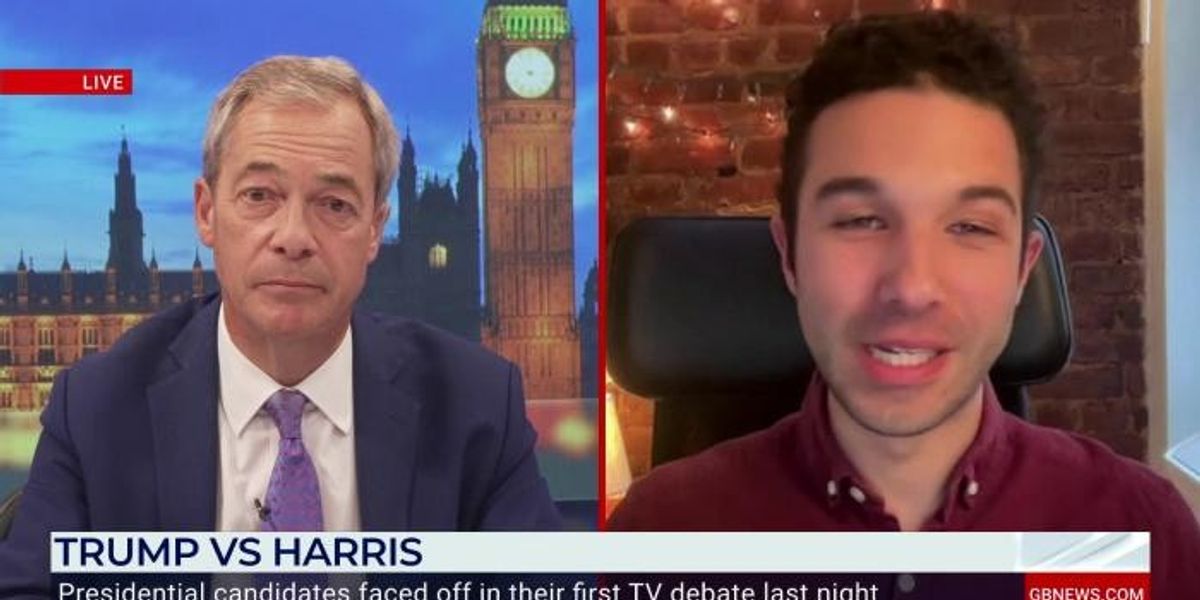Nigel Farage’s Controversial Comments on Donald Trump and Animal Consumption
In a recent segment on GB News, Nigel Farage, the prominent British politician and former leader of the UK Independence Party, stirred the pot with his remarks regarding Donald Trump and the consumption of dogs and cats. Farage’s comments have sparked discussions across social media platforms and news outlets, highlighting the intersection of politics, culture, and animal rights.
The Context of Farage’s Statement
Farage’s comments came during a discussion about Trump’s ability to dominate headlines, regardless of the topic at hand. He stated, “It doesn’t matter what Trump does, he always grabs the headlines.” This assertion underscores Trump’s unique position in the media landscape, where his every utterance can lead to widespread debate and controversy. Farage’s focus on Trump’s past statements about the consumption of pets reflects a broader conversation about cultural practices and the ethical implications of eating animals that are often considered companions.
The Controversial Claim
Farage went on to assert, “They’re eating the dogs, they’re eating the cats: I promise you, as with everything else he says, it will prove to be true. I have no doubt.” This statement raises eyebrows, as it suggests that there is a widespread practice of consuming pets, a notion that many would find shocking. While Farage did not provide evidence to support his claim, it taps into a deep-seated cultural sensitivity surrounding the treatment of animals, particularly those that are domesticated and often viewed as family members.
Trump’s Legislative Action
Interestingly, Farage referenced Trump’s previous actions as President, noting that he signed an order making it illegal to eat dogs and cats in the United States. This legislative move was part of a broader effort to promote animal welfare and protect pets from being viewed as food sources. By highlighting this point, Farage seems to juxtapose Trump’s past commitments to animal rights with his current rhetoric, suggesting a disconnect that could be interpreted in various ways.
The Debate Dynamics
In the same discussion, Farage commented on the recent political debates, particularly focusing on Vice President Kamala Harris. He expressed surprise that Harris did not falter when she deviated from the scripted dialogue, indicating that many expected her to struggle in an unscripted environment. Farage’s observation about Trump’s timing in delivering his best line during the debate—pointing out Harris’s tenure in office—highlights the strategic nature of political discourse. It suggests that effective communication in politics often hinges on timing and the ability to seize the moment.
The Broader Implications
Farage’s comments reflect a larger trend in political discourse where sensational statements can overshadow substantive policy discussions. The mention of consuming dogs and cats, while provocative, diverts attention from pressing issues such as animal rights, food security, and cultural practices surrounding food consumption. It raises questions about the responsibilities of public figures in shaping narratives and the potential consequences of inflammatory rhetoric.
Conclusion
Nigel Farage’s remarks about Donald Trump and the consumption of dogs and cats have ignited a firestorm of discussion, illustrating the power of words in the political arena. While Farage’s comments may have been intended to provoke thought and discussion, they also serve as a reminder of the complexities surrounding cultural practices and the ethical treatment of animals. As the conversation continues, it will be essential to navigate these topics with sensitivity and a commitment to understanding the diverse perspectives that exist within society.
